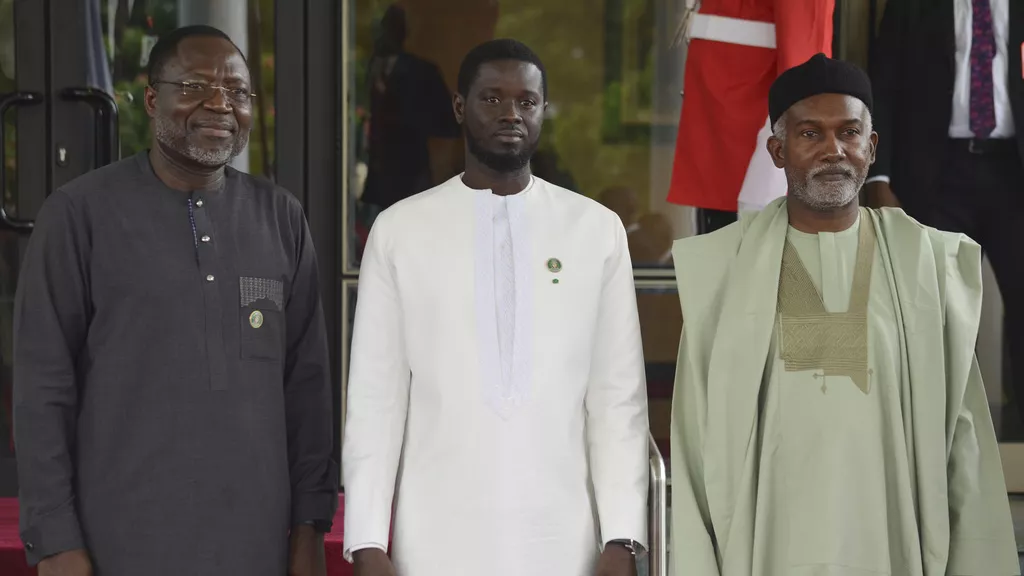adverts
West Africa’s fractured regional bloc on Sunday urged Senegalese President Bassirou Diomaye Faye to engage with the three military-led member states to try to reunite the region whose stability has been threatened since they decided to leave the group in January.
During the ECOWAS conference in Abuja, Nigeria, Mr. Faye was designated as the bloc’s ambassador to meet with Mali, Niger, and Burkina Faso. These countries formed their own union following the coups that severed their ties with their neighbours.
It wasn’t immediately clear what the conversation’s parameters were. At the conference, Omar Alieu Touray, president of the ECOWAS Commission, stated that the president of Senegal, who became the youngest leader in Africa following his election victory in March, “has all the qualifications required to serve as a facilitator.”
adverts
It was announced at their meeting the day before that the three coup-affected countries had “irrevocably turned their backs on ECOWAS.” In the nearly 50 years of its existence, ECOWAS has never seen a member loss of this kind.
In light of the extraordinary regional crises, analysts believe Faye’s mission is crucial. Karim Manuel, a Middle East and Africa expert at the Economist Intelligence Unit, stated that it is unlikely to be fruitful anytime soon due to persistent regional tensions.
According to Mr. Touray, it was the worst time in the bloc’s history. “The possibility of collapse also exists in our region. You most definitely do not become a part of an agreement when you quit it. The possibility of losing those concessions still exists when it comes to free commerce and human mobility.”
Their departure might have an impact on the inhabitants of the three countries, in addition to the potential need for ECOWAS to halt economic projects in those nations should they choose not to return. Free trade and visa-free travel between member states are provided by ECOWAS, the primary political and economic organisation in West Africa.
Additionally, the three ECOWAS nations’ exit may have various effects on its neighbours. They are all connected by borders and lethal security crises that the European Union is attempting to collaborate against and that are presently escalating throughout the area. Observers have cautioned that coups in certain nations can inspire other armies, especially in those whose populace have expressed dissatisfaction over not being able to capitalise on their abundant natural riches.
With his one-year term coming to a close, Nigerian President Bola Tinubu, who was urged to stay on as the bloc’s leader, advocated for stronger and new alliances to help the area grow despite its “enormous challenges.”
Mr. Tinubu declared, “Together, we can pave the way for a prosperous future for all of West Africa.”


